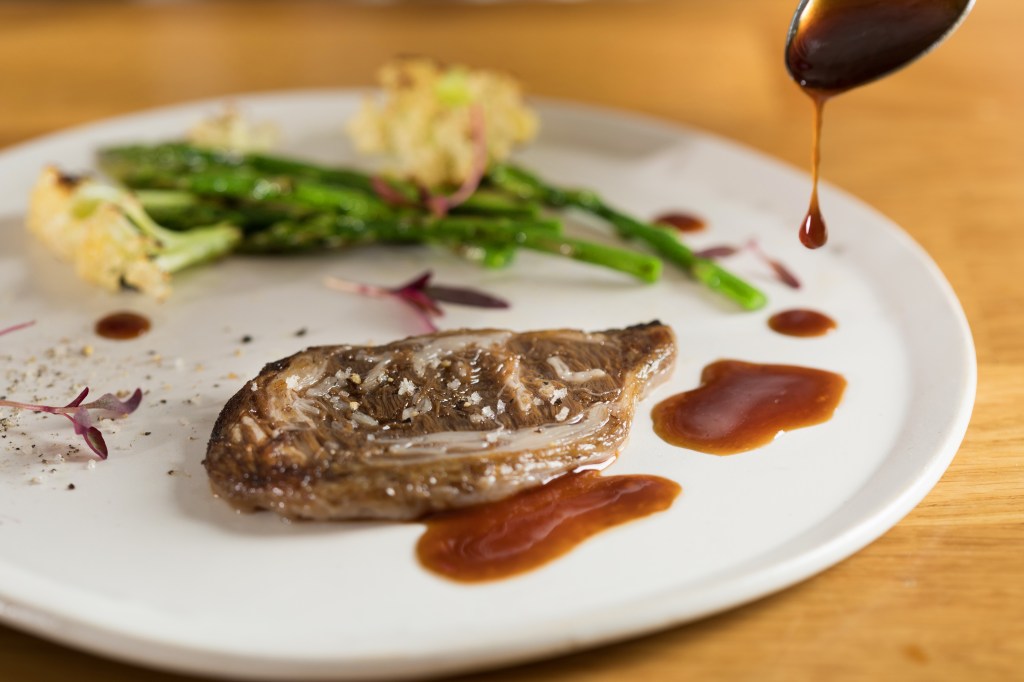A coalition of EU member states submitted a note at a meeting of EU Agriculture Ministers challenging the ethical and environmental viability of cultivated meat products.
According to a report from Euro News, the note was put forward at the latest AGRIFISH Council meeting on 23 January by Austria, France, and Italy and was supported by the Czech, Cypriot, Greek, Hungarian, Luxembourg, Lithuanian, Maltese, Romanian, and Slovak delegations.
Euro News noted this was the first time the issue was debated at this level in the EU.
According to the note, “laboratory cultivated food production” raises ethical and economic questions, as well as social issues and public health concerns. The authors called on the EU executive “to take into account these questions and outcomes of the discussions to be held with the Member States and European civil society before taking any market authorisation decisions.”
“We thus call on the Commission to ensure that artificially lab-grown products must never be promoted as or confused for authentic foods,” the note adds.
The note’s authors also accuse cultivated meat producers of greenwashing, citing studies that show “a poor climate balance of lab-grown meat” and “a very energy-intensive process” compared with traditional livestock farming.

Cultivated meat has in recent months become a highly divisive topic across Europe. Numerous countries have announced large scale investments in the technology while others – such as Italy and France – are taking steps to ban any sale or marketing of such products before they are even approved.
While several countries supported the note, others challenged it, with the Dutch and Danish delegations voicing support for more research and investment in cultivated meat for the goal of enhanced global food security.
Alternative protein non-profit the Good Food Institute Europe said that the research the note references was based on a non-peer-reviewed UC Davis study that makes incorrect assumptions about how cultivated meat is produced and deviates significantly from the existing literature.
GFI Europe points to peer-reviewed research it says has found that, when made with renewable energy, cultivated meat could cause up to 92% less emissions than conventional beef.
GFI Europe also addresses the note’s ethical challenges to cultivated meat relating to foetal bovine serum (FBS) – a by-product of cattle slaughter that has historically been used in cell cultivation. The organisation says the serum is unsuited for large-scale cultivated meat production due to cost factors and inconsistent results, and that many cultivated meat companies have already ceased using it.
“This non-binding statement spreads misinformation about cultivated meat and undermines Europe’s world-leading regulatory system,” said Alex Holst of GFI Europe. “The EU’s Horizon programme and countries like Germany, Spain, and the Netherlands have already invested in cultivated meat, recognising its potential to improve food security, reduce emissions, and satisfy a growing demand for meat.”
Also responding to the note, European Commissioner for Health and Food Safety, Stella Kyriakides emphasised that the EU’s existing Novel Food regulations make sure that human health and consumer interest are well protected in a functioning internal market.

Cultivated meat making leaps in various markets
As it faces controversy in some countries, cultivated meat is seeing significant leaps in others.
Cultivated meat and seafood companies are preparing to hold the first legal tastings in the Netherlands after the government announced an autonomous Expert Committee to review tastings of cultivated products.
Meanwhile, Israeli firm Aleph Farms recently became the first producer in the world to receive regulatory approval for a cultivated beef product, at the same time making Israel the third country to approve commercial sale of cultivated meat.
Cultivated meat companies in Australia are also eagerly awaiting the anticipated approval of the country’s first cultivated product this year, which would add the nation to the three (the US, Singapore, and Israel) that have approved such products for commercial sale.
To stay up-to-date on the latest industry headlines, sign up to Future Alternative’s enewsletter.
Posted on:


